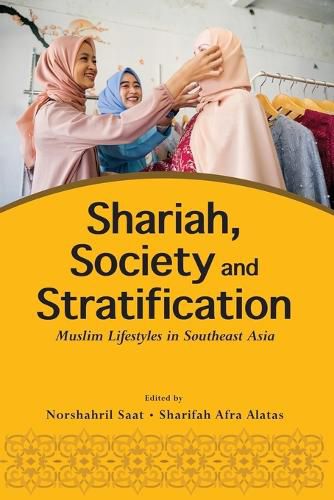Readings Newsletter
Become a Readings Member to make your shopping experience even easier.
Sign in or sign up for free!
You’re not far away from qualifying for FREE standard shipping within Australia
You’ve qualified for FREE standard shipping within Australia
The cart is loading…






This title is printed to order. This book may have been self-published. If so, we cannot guarantee the quality of the content. In the main most books will have gone through the editing process however some may not. We therefore suggest that you be aware of this before ordering this book. If in doubt check either the author or publisher’s details as we are unable to accept any returns unless they are faulty. Please contact us if you have any questions.
Since the Islamic resurgence hit Southeast Asia in the 1980s, Muslim societies now have greater aspirations for adhering to the Shariah, the body of laws meant to govern Muslims' day-to-day lives. At the institutional level, the desire for this compliance manifested in the establishment of various institutions such as Islamic banking and financial programmes. At the personal and societal levels, there are increasing demands for the provision of halal-certified goods and services, most commonly in the food and beverage industry. However, increasingly, compliance to the Shariah is no longer limited to laws or ensuring that food and beverages are halal, but has become an entire lifestyle. The rise of the Muslim middle class in Southeast Asia has catalysed this preference. Muslim consumers now demand that products in other industries, such as fashion, sports, tourism, medicine and personal hygiene, should also be Shariah-compliant and even reminiscent of the time in which Prophet Muhammad lived. This book analyses the various social, economic, and political forces that have contributed to such trends across many countries in Southeast Asia. In identifying these trends and the forces that shape them, it discusses the potential consequences of such a lifestyle on society, specifically in entrenching various forms of stratification.
$9.00 standard shipping within Australia
FREE standard shipping within Australia for orders over $100.00
Express & International shipping calculated at checkout
This title is printed to order. This book may have been self-published. If so, we cannot guarantee the quality of the content. In the main most books will have gone through the editing process however some may not. We therefore suggest that you be aware of this before ordering this book. If in doubt check either the author or publisher’s details as we are unable to accept any returns unless they are faulty. Please contact us if you have any questions.
Since the Islamic resurgence hit Southeast Asia in the 1980s, Muslim societies now have greater aspirations for adhering to the Shariah, the body of laws meant to govern Muslims' day-to-day lives. At the institutional level, the desire for this compliance manifested in the establishment of various institutions such as Islamic banking and financial programmes. At the personal and societal levels, there are increasing demands for the provision of halal-certified goods and services, most commonly in the food and beverage industry. However, increasingly, compliance to the Shariah is no longer limited to laws or ensuring that food and beverages are halal, but has become an entire lifestyle. The rise of the Muslim middle class in Southeast Asia has catalysed this preference. Muslim consumers now demand that products in other industries, such as fashion, sports, tourism, medicine and personal hygiene, should also be Shariah-compliant and even reminiscent of the time in which Prophet Muhammad lived. This book analyses the various social, economic, and political forces that have contributed to such trends across many countries in Southeast Asia. In identifying these trends and the forces that shape them, it discusses the potential consequences of such a lifestyle on society, specifically in entrenching various forms of stratification.